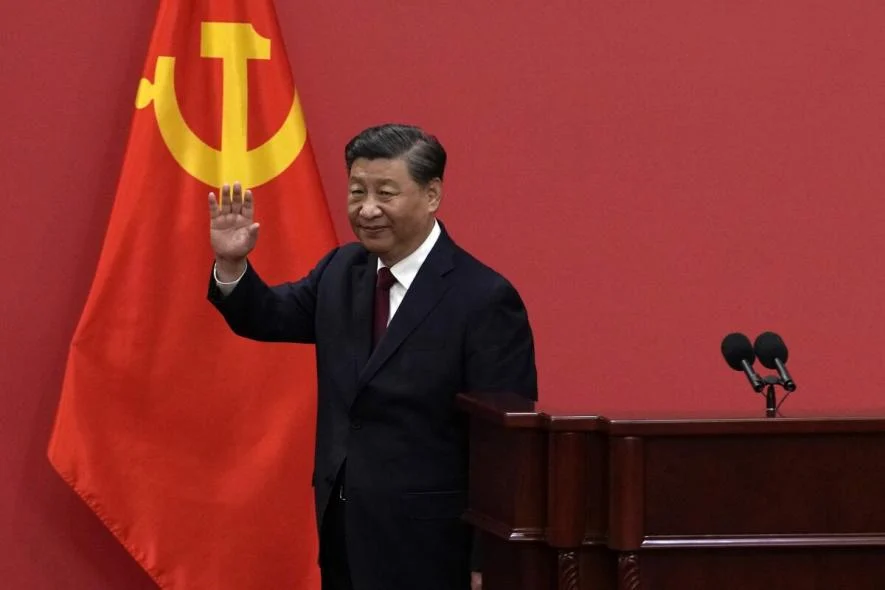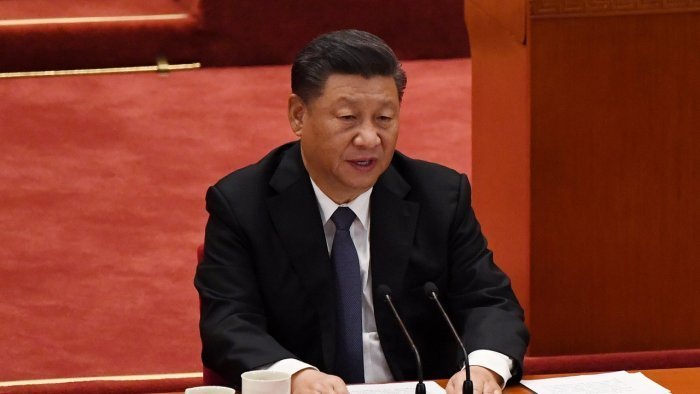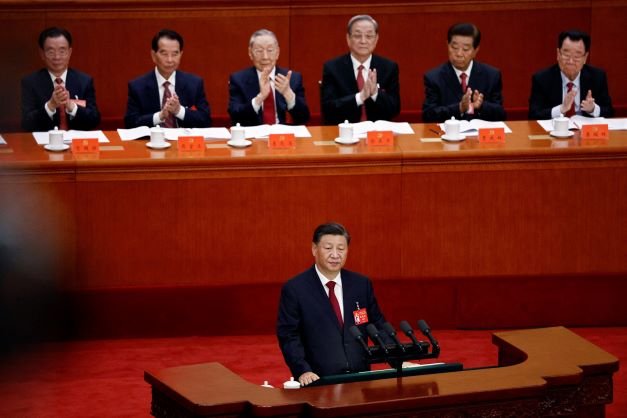BEIJING, Oct 18: Poised for record third five-year term and perhaps for life, Chinese President Xi Jinping’s high-voltage Marxist rhetoric on Sunday with a vow to make China a modern socialist country has raised hackles at home and abroad that the Communist giant, which for decades relegated the ideology to the background, could be taking the turn to the extreme left.
“From this day forward, the central task of the Communist Party of China (CPC) will be to lead the Chinese people of all ethnic groups in a concerted effort to realise the Second Centenary Goal of building China into a great modern socialist country in all respects and to advance the rejuvenation of the Chinese nation on all fronts through a Chinese path to modernisation,” Xi said in his marathon speech at the key Congress of the party on Sunday.
“Only by taking root in the rich historical and cultural soil of the country and the nation the truth of Marxism flourish here,” he told the over 2,300 delegates of the week-long 20th Congress, which is due to confirm his unprecedented 3rd five-year term to make him the only leader after the party founder Mao Zedong to continue in power after 10-year term.
Xi, 69, who came to power in 2012, has raised the ideological bar of the CPC, which earlier relegated the ideology to the backseat for the last three decades.
China emerged as the second largest economy after the US during this period riding on the success of opening up and economic reforms initiated by Deng Xiaoping, ending Mao’s disastrous tryst with extreme Marxist-Leninist communist ideology.
Deng, who succeeded Mao after his death in 1976, ended the founder’s ideological obsession and advocated a new theory of Socialism with Chinese Characteristics under which CPC remained all but a Communist party by name.
In the following years, it practised a policy of reform and opening up advocated by Deng attracting massive foreign investments to revive the country, which went bankrupt under Mao.
Deng, who is widely regarded as the father of China’s economic rise, dismissed the importance of Marxist ideology bluntly at a CPC conference in 1981 with a cryptic remark “let’s dispense with the theory”, which became a buzzword for the party leaders.
His successors Jiang Zemin and Hu Jintao followed his lead, rapidly expanding the role of the market in the Chinese domestic economy and embracing a foreign policy that maximized China’s participation in a global economic order led by the United States.
“Xi has brought that era of pragmatic, non-ideological governance to a crashing halt,” Australia’s former prime minister Kevin Rudd, who is widely regarded as the foremost expert on China, wrote recently in the Foreign Affairs journal.
“In its place, he has developed a new form of Marxist nationalism that now shapes the presentation and substance of China’s politics, economy, and foreign policy,” he said.
“Xi has pushed politics to the Leninist left, economics to the Marxist left, and foreign policy to the nationalist right,” Rudd said.
Xi has “reasserted the influence and control the CPC exerts over all domains of public policy and private life, reinvigorated state-owned enterprises, and placed new restrictions on the private sector”, Rudd said in his write-up ahead of the CPC Congress.
Meanwhile, Xi has “stoked nationalism by pursuing an increasingly assertive foreign policy, turbocharged by a Marxist-inspired belief that history is irreversibly on China’s side. In short, Xi’s rise has meant nothing less than the return of Ideological Man”, he said.
Cai Xia, who worked as a professor for 15 years at CCP’s Central Party School in Beijing, said Xi, a devoted student of Mao, is eager to leave his mark on history.
The Central Party School which was headed by Xi himself when he was the Vice President taught ideological subjects to the CCP cadre at various levels.
“And because previous reforms failed to place real checks and balances on the party leader, Xi has succeeded. Now, as under Mao, China is a one-man show,” Cai, who migrated to the US after her retirement and turned a dissident, wrote in the Foreign Affairs journal.
“One part of Xi’s plot to consolidate power was to solve what he characterised as an ideological crisis. The Internet, he said, was an existential threat to the CCP, having caused the party to lose control of people’s minds” and cracked down on bloggers and online activists, censored dissent and strengthened China’s “great firewall” to restrict access to foreign websites, she said.
“The effect was to strangle a nascent civil society and eliminate public opinion as a check on Xi,” she said. (PTI)







